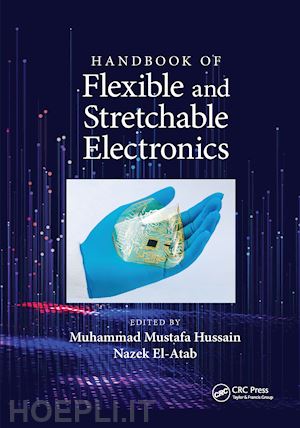Prof. Muhammad Mustafa Hussain received his BSc in Electrical and Electronic Engineering fromBangladesh University of Engineering and Technology, Dhaka, Bangladesh, in 2000. Then he completedMSc in Electrical Engineering from University of South California, Los Angeles, CA, in 2002.Next he earned another MSc and PhD in Electrical and Computer Engineering from the University ofTexas at Austin, in 2004 and 2005, respectively. Currently, he is a professor of Electrical Engineeringat King Abdullah University of Science and Technology (KAUST), Thuwal, Saudi Arabia. He wasrecently a visiting professor in EECS of University of California, Berkeley. Before joining KAUST, Prof.Hussain was a program manager of Emerging Technology Program in SEMATECH, Inc. Austin, Texas.A regular panelist of US NSF grants reviewing committees, he is the fellow of American Physical Society(APS), Institute of Physics, UK, and Institute of Nanotechnology, UK, IEEE Electron Devices SocietyDistinguished Lecturer, editor-in-chief of Applied Nanoscience (Springer-Nature), editor of IEEETransactions on Electron Devices, and an IEEE Senior Member. He has served as first or correspondingauthor in 90% of his 2300+ research papers (including 27 invited reviews, 32 cover articles, and150 journal papers). He has more than 60 issued and pending US patents. His students are serving asfaculty and researchers in MIT, Stanford, UC Berkeley, Caltech, Harvard, UCLA, Yale, Purdue, TSMC,Intel Corporation, KACST, KFUPM, KAU, and DOW Chemicals. Scientific American has listed hisresearch as one of the Top 10 World Changing Ideas of 2014. Applied Physics Letters selected his paper asone of the Top Feature Articles of 2015. He and his students have received 39 research awards includingIEEE Region 5 Outstanding Individual Achievement Award 2016, World Technology Award Finalist inHealth and Medicine 2016, TEDx 2017, Outstanding Young Texas Exes Award 2015 (UT Austin AlumniAward), US National Academies’ Arab-American Frontiers of Sensors 2015, 2016, DOW ChemicalSustainability Challenge Award 2012, etc. His research has been highlighted extensively in internationalmedia like in Washington Post, Wall Street Journal (WSJ), IEEE Spectrum, etc. His research interest is toexpand the horizon of CMOS electronics and technology for futuristic applications.Dr. Nazek El-Atab received her BSc degree in Computer and Communications Engineering fromthe Rafik Hariri University, Lebanon, in 2012, her MSc degree in Microsystems Engineering from theMasdar Institute of Science and Technology, Abu Dhabi, UAE, in 2014, and her PhD degree inInterdisciplinary Engineering from the Masdar Institute in 2017. Currently, she is a post-doctoralresearch fellow with Professor Muhammad Mustafa Hussain at the MMH labs at KAUST. Her currentresearch focuses on the design and fabrication of futuristic electronics.She has received several awards for her research, including the 2015 For Women in Science MiddleEast Fellowship by L’Oreal-UNESCO, Best Paper Award in the Micro/Nano-systems section at theUAEGSRC 2016 conference, the 2016 IEEE Nanotechnology Student Travel Award in Japan, the 2017International Rising Talents Award by L’Oreal-UNESCO, the 2018 “Rafik Hariri University” AlumniAward, and was portrayed in the 2019 “Remarkable Women in Technology” by UNESCO. She has publishedover 30 papers in international peer-reviewed scientific journals and conference proceedings and2 book chapters, and has 4 pending US patents. She has served as a Jury member for the 2017 For Womenin Science Middle East Fellowship by L’Oreal-UNESCO and a member of the Panel of Experts for the2019 For Women in Science Awards by L’Oreal-UNESCO. Her research has been highlighted extensivelyin international media including The National, America’s Navy, Office of Naval Research, Emirates NewsAgency, Skynews Arabia TV, Khaleej Times, Monte Carlo Paris, the Health Medicine Network, etc.











